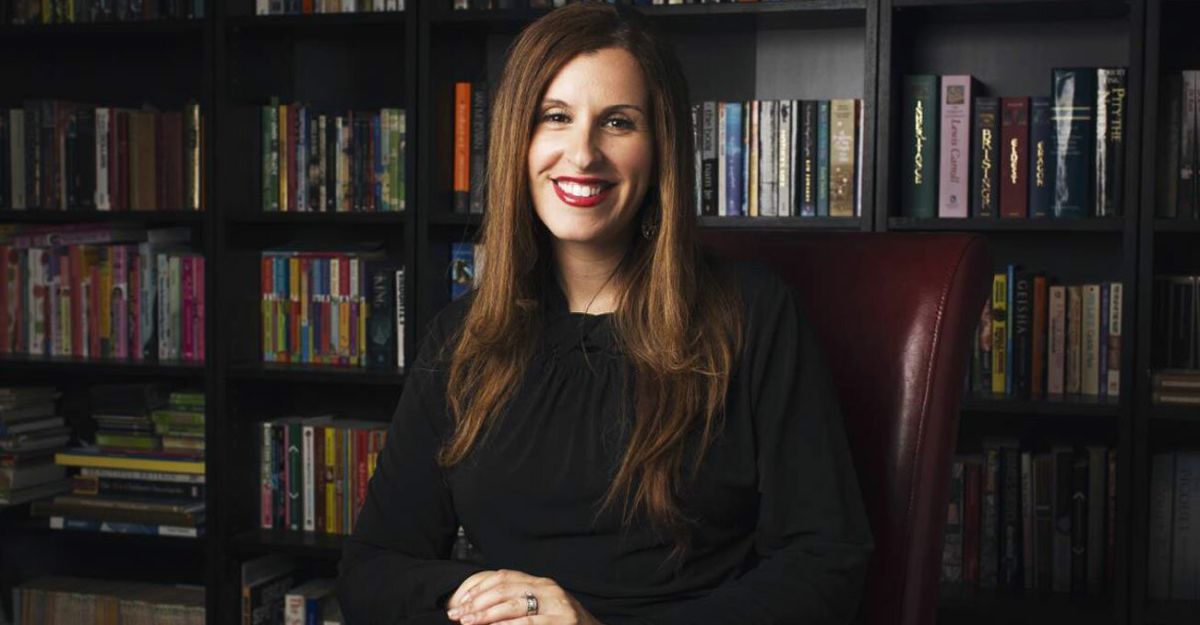To Pip Nicholson, Deputy Vice-Chancellor (People & Community) and Barry Judd, Deputy Vice-Chancellor (Indigenous)
In your recent letter to the university community, you describe ‘the ongoing Israel-Gaza conflict and subsequent activism’ as a challenge to ‘our principles and the boundaries between academic freedom, free speech and racism’. You then say nothing whatsoever about the motivation of the activism you deem so ‘challenging’: that is, the global opposition to the activities of the Israeli apartheid regime.
The University Anti-Racism Action Plan begins with a commitment, first, to acknowledge racism and, second, to understand it. You are both esteemed scholars. You must know that major human rights groups (Amnesty International, Human Rights Watch, the International Federation for Human Rights, B’Tselem, Yesh Din, etc) describe Israel as practising apartheid. Your Anti-Racism Action Plan asserts that the university response to racism must be ‘visible, transparent and fair’ so as to ‘build confidence in students and staff to disclose and report racism so that it can be addressed.’ How, then, can you circulate a letter about the war on Gaza that does not mention Israeli apartheid?
Your document claims ‘academic freedom’ as a core value, implicitly in opposition to the calls by Palestinian civil society for a boycott of Israeli universities. You link to a statement by the Deputy Vice-Chancellor (Research) and the Deputy Vice-Chancellor (Global, Culture and Engagement) pledging ‘unwavering support for all our staff members and students who are supporting and conducting research internationally.’ That statement says:
International research is fundamental to our academic institution and our staff and students must be free to undertake their work without fear or intimidation.
At its core, academic freedom ensures that scholars can explore, investigate, and challenge ideas without fear or favour. It exists to ensure that academics can advance knowledge without pressure from management, governments, corporations or political movements.
In reality, as you know, scholars do not enjoy absolute academic freedom. On the contrary, the University of Melbourne enforces sanctions against many states, including the Central African Republic, Democratic Republic of Congo, Democratic People’s Republic of Korea (North Korea), Iran, Iraq, Lebanon, Libya, Myanmar, Russia, Somalia, Sudan, South Sudan, Syria, Yemen and Zimbabwe. The university website describes these measures as ‘an alternative to armed force to address situations of international concern, for example in response to an abuse of human rights or the proliferation of weapons.’
The official death toll in Gaza now exceeds 40,000 people but most experts consider that figure way too low, given the bodies still buried under rubble. An estimate published by The Lancet earlier this year suggested the true number of deaths might have already exceeded 186,000. At least a hundred thousand people have been injured, with a quarter of them suffering from life-altering conditions, for which they are receiving no rehabilitation. The UN official Lisa Doughten talks about ‘the largest cohort of child amputees in modern history’. UNICEF spokesperson James Elder describes Gaza as ‘a graveyard for thousands of children’; the NGO Save the Children recently explained that more children were killed by Israel in the last three weeks of October than were killed around the world in every war since 2019. Oxfam notes that, since the Gaza incursion began, Israeli explosives have struck, on average, homes every four hours, tents and temporary shelters every 17 hours, schools and hospitals every four days, and aid distribution points and warehouses every 15 days.
The Israeli historian Raz Segal, Associate Professor of Holocaust and Genocide Studies and Endowed Professor in the Study of Modern Genocide at Stockton University, describes Israel’s actions as ‘a textbook case of genocide’. Professor Adam Jones (author of the most widely-used textbook in genocide studies, Genocide: A Comprehensive Introduction) agrees, as do Ernesto Verdeja (Executive Director of the Institute for the Study of Genocide), Amos Goldberg (Professor of Holocaust History at the Department of Jewish History and Contemporary Jewry at The Hebrew University of Jerusalem), Michael A Becker (Editor-in-Chief of the Yale Journal of International Law), Martin Shaw (Research Professor at the Institute Barcelona d’Estudis Internacionals) and many, many other leading genocide scholars.
Young photographers and filmmakers in Gaza have found themselves in the position of documenting the genocide, persisting despite the IOF’s targeting of identified journalists in the region. In the words of Motaz Azaiza, “We’re not content to be shared, we are a nation that is getting killed and we’re trying not to be ethnically cleansed.” Award-winning journalist Bisan Owda’s refrain “I’m still alive” foreshadows a question that haunts Palestinians in Gaza and the West Bank: “but for how much longer?”
Are we truly to believe that the university does not consider the war on Palestine ‘a situation of international concern’? It’s true that the sanctions imposed by the university on the Central African Republic, etc, are mandated by a federal government that has not taken similar action against Israel. But the Deputy Vice-Chancellor (Research) and the Deputy Vice-Chancellor (Global, Culture and Engagement) assure us that decisions about scholarship are taken without pressure from governments. Given the university explicitly describes sanctions as a legitimate response to human rights violations, the inaction of the Australian government makes the moral case for a university decision on Israel more, not less, compelling.
In your letter, you say that you ‘stand ready to work with you, the sector, and government’ to eradicate racism. We share that goal and so seek urgent answers to the following:
- As the leaders of the university’s anti-racism efforts, responding to activism around Gaza, and committed to acknowledging and understanding racism, when will you address the allegations by major human rights groups that Israel is committing the crime of apartheid?
- Does the university condemn the egregious human rights violations that Israel has committed and continues to commit in Gaza and elsewhere?
- Given that the International Court of Justice asserts that every institution has a responsibility to prevent genocide, what steps is the university taking to prevent the credible threat of this crime against the Palestinian people?
- If it is morally legitimate for the university to impose sanctions on Lebanon, Syria, etc, how do you justify your opposition to the call by representatives of the Palestinian people for similar sanctions on Israel?
These are vital issues for the university community and beyond. Accordingly, we will publicise both this letter and your response as widely as possible.
1. Jeff Sparrow, Faculty of Arts
2. Therese Keogh, Faculty of Fine Arts and Music
3. Chloe Mackenzie, Faculty of Arts
4. Anni Fender, Faculty of Arts
5. Mairead Murray, MDHS
6. Sahar Ghumkhor, Faculty of Arts
7. Javeria, Faculty of Science
8. Angelita Biscotti, Faculty of Arts
9. Nathan Fioritti, Faculty of Arts
10. Lisa Radford, Faculty of Fine Arts and Music
11. Wajeehah Aayeshah, Faculty of Arts
12. Emily Rosenthal, Faculty of Arts
13. Kemal Kurniawan, Faculty of Engineering and Information Technology
14. Michael Errity
15. Rachel Hughes, Faculty of Science
16. Bradley Hoare, MDHS
17. Mia Dunphy, Faculty of Science
18. Zali Fung, Faculty of Science
19. Sophie Rudolph, Faculty of Education
20. Liz Strakosch, Faculty of Arts
21. Jordana Silverstein, Melbourne Law School
22. Mitchell King, University Services
23. George Wood, Faculty of Arts
24. Le-Anne Bannan, Faculty of Science
25. Emmy Brown, Faculty of Science
26. Tommy Ness, Faculty of Arts
27. Sam Bateman, University Services
28. Adil Hasan Khan, Melbourne Law School
29. Fia Hamid-Walker, Melbourne Law School
30. Dylan Asafo, Melbourne Law School
31. Simon During, Faculty of Arts
32. Erin Fitz-Henry, Faculty of Arts
33. Alexander Emile D’Aloia, Faculty of Arts
34. Bina Fernandez, Faculty of Arts
35. Elliot Dolan-Evans, Faculty of Arts
36. Johanna Commins, Melbourne Law School
37. Hanan Sahmoud, Melbourne Law School
38. Richard Joyce, Melbourne Law School
39. Waleed Ali, MDHS
40. Hossam El-Haddad, MDHS
41. Alex Bowen, Faculty of Arts/Melbourne Law School
42. Miles Kenney-Lazar, Faculty of Science
43. Shantanu Kulshreshth, Faculty of Science
44. Anne Décobert, Faculty of Arts
45. Jessica Marian, Faculty of Arts
46. André Dao, Melbourne Law School
47. Rosie Poulier, Student Administration
48. Ariane Utomo, Faculty of Science
49. Romi Graham, University Services
50. Janelle Koh, Melbourne Law School
51. Eleanor Colla
52. Maria Matheas, SASS
53. Aisha Ismail, Faculty of Science
54. Chloe Stringer, Faculty of Science
55. Natalie, Faculty of Arts
56. John Sebastian, Melbourne Law School
57. Naimah, Faculty of Science
58. Vanessa Yee, Faculty of Science
59. Rahma
60. Adon, University Services
61. Tanvee Nandan, Melbourne Law School
62. Naima Hassen, Faculty of Science
63. Fin Healy, Faculty of Arts
64. Angeline Chan, University Services
65. Kathryn Ticehurst, Faculty of Arts
66. Libby O’Shea, University Services
67. Meredith Faragher, MDHS
68. Justin Clemens, Faculty of Arts
69. Faiza Rahman, Melbourne Law School
70. Kate MacNeill, Faculty of Arts
71. Dianne Otto, Melbourne Law School
72. Haris Jamil, Melbourne Law School
73. Crystal McKinnon, Faculty of Arts
74. Amanda Porter, Faculty of Arts
75. Dove Rengger-Thorpe, Faculty of Fine Arts and Music
76. Matthew JuJu Munns, Faculty of Science
77. Jessica Broadbent, Faculty of Science
78. Elena Tjandra, Faculty of Science
79. Kelly McDermott, Faculty of Education
80. Alex Bacalja, Faculty of Education
81. Bridie Shepherd, Faculty of Science
82. Natalie Ann Hendry, Faculty of Education
83. Christina Deluchi, Faculty of Architecture, Building and Planning
84. Alice Wighton, Faculty of Arts
85. Fiza Zali, Faculty of Education
86. Kate Jama, Melbourne Law School
87. Matthew Taft, Faculty of Arts
88. Morgan Jones, Faculty of Fine Arts and Music
89. Debris Facility, Faculty of Fine Arts and Music
90. Rebecca Howe, Faculty of Arts
91. Celia Harvey, MDHS
92. Rajith Vidanaarachchi, Faculty of Architecture, Building and Planning/FEIT
93. Kai Perrignon, Faculty of Fine Art and Music
94. Dana Young, MDHS
95. Natalie Calleja, Faculty of Education
96. Alison Gibberd, MDHS
97. Giles Fielke, Faculty of Arts
98. Benjamin Gerraty, Faculty of Science
99. Lachlan Rowles, FEIT
100. Bonnie Gordon, Faculty of Architecture, Building and Planning
101. Panda Wong, University Services
102. Kyle Harvey, Faculty of Arts
103. Nathan Pittman, Faculty of Architecture, Building and Planning
104. Sebastian Salay, Faculty of Architecture, Building and Planning
105. Genevieve Siggins, University Services
106. Ben Gook, Faculty of Arts
107. Tim Delany, PhD candidate, Faculty of Education
108. Will Arpke-Wales, Faculty of Arts
109. Alana Scully, Faculty of Arts
110. Eugenia Lim, Faculty of Fine Arts and Music
111. Kamilia Eriani, Faculty of Arts
112. Stephen Chatelier, Faculty of Education
113. Anila Hasnain, Faculty of Arts
114. Minhui Law, MDHS
115. Mell Chun, Faculty of Arts
116. Julian Grace, MDHS
117. Hadeel Ibrahim, MDHS
118. Jill Pope, Faculty of Arts
119. Maree Martinussen, Faculty of Education
120. Michael Bader, Melbourne Law School
121. Sumedha Choudhury, Melbourne Law School
Image: Angelita Biscotti



